

Registration fee: $50 ($35 students)
This conference was part of a two-day event, Frontiers in Research Ethics:
- To learn more about the March 9 morning conference, The Challenges of Informed Consent in Research with Children, Adolescents & Adults, click here.
- To learn more about the March 9 afternoon Trainings and Workshops, click here.
It’s been more than 100 years since the landmark Schloendorff v. Society of New York Hospital decision, in which the court articulated a foundational concept of bioethics: “Every human being of adult years and sound mind has a right to determine what shall be done with his own body.” This national conference brought together renowned speakers from a variety of disciplines who addressed how informed consent ethics and policy have developed over the past century, and what tools are needed to improve patient and research participant protections going forward. Discussion included recent changes to the Common Rule governing research, including changes on informed consent and broad consent.
Agenda and Videos
Wednesday, March 8, 2017
Coffman Theater, Coffman Union
University of Minnesota
8:30 am
Welcome and Plenary View Video
• Susan M. Wolf, JD, McKnight Presidential Professor of Law, Medicine & Public Policy; Faegre Baker Daniels Professor of Law; Professor of Medicine; Chair, Consortium on Law and Values in Health, Environment & the Life Sciences, University of Minnesota
Where Did Informed Consent Come From?
• Alexander Morgan Capron, LLB, University Professor; Scott H. Bice Chair in Healthcare Law, Policy and Ethics; Professor of Law and Medicine, Keck School of Medicine; Co-Director, Pacific Center for Health Policy and Ethics, University of Southern California
Q/A
9:45 am
Informed Consent in Genomics & Translational Medicine: Challenges at the Interface of Research & Clinical Care View Video
(moderator: Ellen Wright Clayton, MD, JD, Craig-Weaver Professor of Pediatrics; Professor of Law; Professor of Health Policy, Co-Founder, Center for Biomedical Ethics and Society, Vanderbilt University)
• Wylie Burke, MD, PhD, Professor, Department of Bioethics and Humanities; Member, Fred Hutchinson Cancer Research Center, University of Washington
Q/A
10:45 am
Break
11:00 am
Panel: Failures of Informed Consent – Lessons View Video
(moderator: Frances Lawrenz, PhD, Wallace Professor of Teaching & Learning, Dept. of Educational Psychology; Associate Vice President for Research, University of Minnesota)
• Sarah Gehlert, PhD, E. Desmond Lee Professor of Racial and Ethnic Diversity, George Warren Brown School of Social Work; Professor, Dept. of Surgery, School of Medicine; Co-Director, Center for Community Health and Partnerships, Institute for Public Health; Director, Center for Community Engaged Research, Institutes for Clinical and Translational Sciences, Washington University in St. Louis
• Eric Kodish, MD, Professor of Pediatrics and Bioethics at the Lerner College of Medicine of Case Western Reserve University; Pediatric Hematologist, Cleveland Clinic
• Richard R. Sharp, PhD, Professor of Biomedical Ethics; Professor of Medicine; Director, Biomedical Ethics Program, Center for Individualized Medicine Bioethics Program, Clinical and Translational Research Ethics Program, Mayo Clinic
• Barbara Koenig, PhD, RN, Professor, Institute for Health and Aging, School of Nursing; Director, Bioethics Program, University of California, San Francisco
Q/A: panelists will be joined by Prof. Capron and Prof. Burke
12:30 pm
Networking Lunch
1:30 pm
Panel: Informed Consent When Participants Have Diminished or Fluctuating Decisional Capacity – A Case Study of Evolving Approaches at the University of Minnesota View Video
(moderator: Douglas Yee, MD, Director, Masonic Cancer Center; Professor, Medicine and Pharmacology; John H. Kersey Chair in Cancer Research, University of Minnesota)
• Allen S. Levine, PhD, Interim Vice President for Research and Professor, Dept. of Food Science and Nutrition, University of Minnesota
• Scott R. Sponheim, PhD, LP, Staff Psychologist, Minneapolis Veterans Affairs Health Care System; Professor, Dept. of Psychiatry, University of Minnesota
• Carl Elliott, MD, PhD, Professor, Center for Bioethics and Dept. of Pediatrics, University of Minnesota
• Michelle H. Biros, MD, MS, Interim Department Head & Research Director, Dept. of Emergency Medicine; Chair, Medical School Institutional Review Board, University of Minnesota
Q/A
2:45 pm
Break
3:00 pm
Panel: The Future of Informed Consent View Video
(moderator: Jakub Tolar, MD, PhD, Executive Vice Dean, Medical School; McKnight Professor of Pediatrics; Edmund Wallace Tulloch and Anna Marie Tulloch Chair in Stem Cell Biology, Genetics and Genomics; Director, Stem Cell Institute, University of Minnesota)
• Pilar N. Ossorio, PhD, JD, Professor of Law & Bioethics, University of Wisconsin, Madison
• Mark A. Rothstein, JD, Herbert F. Boehl Chair of Law and Medicine, Founding Director of the Institute for Bioethics, Health Policy and Law, University of Louisville School of Medicine
• Effy Vayena, PhD, Swiss National Science Foundation (SNSF) Professor of Health Policy, Health Ethics and Policy Lab, University of Zurich
• John Wilbanks, BA, Chief Commons Officer, Sage Bionetworks
• Gail E. Henderson, PhD, Professor of Social Medicine, School of Medicine; Adjunct Professor of Sociology, University of North Carolina, Chapel Hill
4:45 pm
Closing remarks View Video
• Ellen Wright Clayton, MD, JD, Co-Founder, Center for Biomedical Ethics and Society, Vanderbilt University
• Frances Lawrenz, PhD, Professor of Educational Psychology, University of Minnesota
5:00 pm
Adjourn
Speaker Biographies

Susan M. Wolf, JD, is chair of the conference planning committee. She is McKnight Presidential Professor of Law, Medicine & Public Policy; Faegre Baker Daniels Professor of Law; and Professor of Medicine at the University of Minnesota. Prof. Wolf is Chair of the Consortium on Law and Values in Health, Environment & the Life Sciences. She is an elected member of the National Academy of Medicine (NAM) and a Fellow of the American Association for the Advancement of Science. Prof. Wolf's research has been supported by the National Institutes of Health (NIH) and National Science Foundation (NSF) as well as private foundations including the Robert Wood Johnson Foundation and The Greenwall Foundation. She is currently a Principal Investigator on a project funded by the National Human Genome Research Institute (NHGRI) and National Cancer Institute (NCI) of the National Institutes of Health, LawSeq: Building a Sound Legal Foundation for Translating Genomics into Clinical Application (1-R01-HG008605).
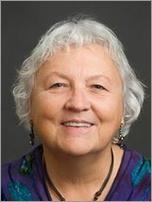
Michelle H. Biros, MD, MS, is Interim Department Head and Research Director of the Department of Emergency Medicine, and Chair of the Medical School Institutional Review Board at the University of Minnesota. She is an elected member of the Institute of Medicine (IOM) and past Editor-in-Chief for Academic Emergency Medicine. She's currently Principal Investigator for the University of Minnesota hub of the National Institute of Neurological Disorders and Stroke (NINDS)-funded Neurological Emergencies Treatment Trials network. She is also Co-PI of the University of Minnesota regional coordinating center for the NINDS-funded Stroke Net.

Wylie Burke, MD, PhD, is Professor and former Chair of the Department of Bioethics and Humanities at the University of Washington. Prof. Burke is an elected member of the National Academy of Medicine, past-President of the American Society of Human Genetics, and former-Chair of the Institute of Medicine Roundtable on the Translation of Genome-based Research for Health. She is also the Founding Director of the University of Washington's Center for Genomics and Healthcare Equality, which has been funded by the National Human Genome Research Institute. Her research grapples with the ethical and policy implications of genomics in medicine and public health, including the translation of novel genomic technologies from bench to clinic.

Alexander Capron, LLB, is University Professor; Vice Dean for Faculty and Academic Affairs and Scott H. Bice Chair in Healthcare Law, Policy and Ethics in the Gould School of Law; and Professor of Law and Medicine at the Keck School of Medicine, all at the University of Southern California (USC). The former Director of Ethics, Trade, Human Rights and Health Law at the World Health Organization, he teaches Public Health Law; Torts; and Law, Science, and Medicine. Prof. Capron is also Co-Director of the Pacific Center for Health Policy and Ethics at USC, a campus-wide interdisciplinary research and education center, an elected member of the National Academy of Medicine and the American Law Institute, a fellow of the Hastings Center and the American Association for the Advancement of Science, and an Honorary Fellow of the American College of Legal Medicine.

Ellen Wright Clayton, MD, JD, is Craig-Weaver Professor of Pediatrics, Professor of Law, and Co-founder of the Center for Biomedical Ethics and Society, Vanderbilt University. She is the 2010 recipient of the William G. Bartholome Award for Ethical Excellence from the American Academy of Pediatrics’ Section on Bioethics. Prof. Clayton is an elected member of the Institute of Medicine (IOM), where she serves on the National Advisory Council, and a Fellow of the American Association for the Advancement of Science (AAAS). She has advised the National Institutes of Health and other federal and international bodies on topics ranging from children's and women's health to the ethical conduct of human subject research. She is currently a Principal Investigator on a project funded by the National Human Genome Research Institute (NHGRI) and National Cancer Institute (NCI) of the National Institutes of Health, LawSeq: Building a Sound Legal Foundation for Translating Genomics into Clinical Application (1-R01-HG008605).

Carl Elliott, MD, PhD, is Professor in the Center for Bioethics and the Department of Pediatrics, and an affiliate faculty member in the Department of Philosophy and the School of Journalism and Mass Communications. He is the author or editor of seven books, including White Coat, Black Hat: Adventures on the Dark Side of Medicine (Beacon, 2010) and Better than Well: American Medicine Meets the American Dream (Norton, 2003.) His articles have appeared in The New Yorker, The Atlantic Monthly, The London Review of Books, Mother Jones, The New York Times and The New England Journal of Medicine. In 2011 the Austen Riggs Center awarded him its Erikson Prize for Excellence in Mental Health Media.

Sarah Gehlert, PhD, is the E. Desmond Lee Professor of Racial and Ethnic Diversity at the Brown School of Social Work and is on the faculty of the Department of Surgery of the School of Medicine at Washington University in St. Louis. She is a scholar in Washington University’s Institute of Public Health and serves on its Faculty Advisory Committee. Dr. Gehlert is the Co-Program Leader of the Prevention and Control Program of the Alvin J. Siteman Cancer Center, Co-Director of the Transdisciplinary Center on Energetics and Cancer (TREC), and Training Program Director of the Program for the Elimination of Cancer Disparities (PECaD). Prof. Gehlert serves on the Executive Committee of the university’s Institute for Clinical and Translational Science (a CTSA) and the Co-Chair of the Center for Community-Engaged Research.
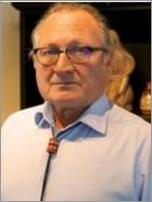
Gail E. Henderson, PhD, is Professor of Social Medicine in the School of Medicine and Adjunct Professor of Sociology at the University of North Carolina at Chapel Hill. She was Chair of Social Medicine from 2009 to 2015. Her teaching and research interests include global health inequality and research ethics. Prof. Henderson is a medical sociologist with training in public health and has extensive experience with interdisciplinary research and analysis. Her research and publications on health care in China have spanned three decades, and since 1999, Prof. Henderson's research on bioethics has been funded by the National Human Genome Research Institute’s (NHGRI) Program on Ethical, Legal and Social Implications (ELSI) of Genomic Research.

Eric Kodish, MD, is Professor of Pediatrics and Bioethics at the Lerner College of Medicine of Case Western Reserve University and a practicing pediatric hematologist at Cleveland Clinic. He recently completed 12 years of service as the F.J. O’Neill Professor and Chairman of Bioethics and Executive Director of the Cleveland Fellowship in Advanced Bioethics. Prof. Kodish is a member of the Advisory Council for the National Institutes of Health's National Center for Advancing Translational Sciences and a Fellow of The Hastings Center.
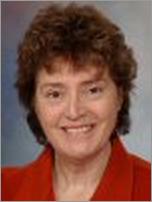
Barbara A. Koenig, PhD, RN, is Director of the Bioethics Program and Professor of Medical Anthropology and Bioethics, Department of Social and Behavioral Sciences, Institute for Health and Aging, at University of California, San Francisco. Prof. Koenig has pioneered the use of empirical social science methods in the study of ethical questions in science, medicine, and health. Her research addresses new biomedical technologies, particularly those within the genomic sciences, and care near the end of life. She integrates the study of everyday practice—such as informed consent procedures and classification systems in genetic research—with normative analysis.

Frances Lawrenz, PhD, is Professor of Educational Psychology and Associate Vice President for Research at the University of Minnesota. Her research focuses on science and mathematics program evaluation, utilizing a variety of techniques and usually involving mixed methodologies. Along with her teaching duties, Prof. Lawrenz is currently involved in the evaluation of several national science and mathematics programs. She has been recognized by the American Educational Research Association, having been awarded the 2016 Research on Evaluation SIG Distinguished Scholar Award for outstanding contributions to advance research in the field of evaluation, and by the National Association for Research in Science Teaching, with the Distinguished Contributions to Science Education through Research Award for outstanding contributions to science education in 2014. She is currently a Principal Investigator on a project funded by the National Human Genome Research Institute (NHGRI) and National Cancer Institute (NCI) of the National Institutes of Health, LawSeq: Building a Sound Legal Foundation for Translating Genomics into Clinical Application (1-R01-HG008605).
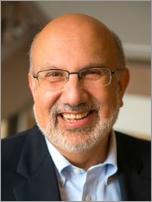
Allen S. Levine, PhD, is Interim Vice President for Research and Professor of Food Science and Nutrition at the University of Minnesota. Prior to his current position he was Vice Provost for Faculty and Academic Affairs; Dean of the College of Food, Agricultural and Natural Resource Sciences; and Head of the Department of Food Science and Nutrition. He was the Associate Director of Research and a Senior Career Scientist at the Minneapolis VA Medical Center for 26 years. He also founded the NIDDK-funded Minnesota Obesity Center and was its director for 20 years.

Pilar Ossorio, PhD, JD, is Professor of Law and Bioethics at the University of Wisconsin, Madison, where she is on the faculty of the Law School and the Department of Medical History and Bioethics at the Medical School. In 2011 she became the inaugural Ethics Scholar-in-Residence at the Morgridge Institute for Research, the private, nonprofit research institute that is part of the Wisconsin Institutes for Discovery. Prof. Ossorio also serves as the co-director of UW's Law and Neuroscience Program, as a faculty member in the UW Masters in Biotechnology Studies program, and as Program Faculty in the Graduate Program in Population Health. Prior to taking her position at UW, she was Director of the Genetics Section of the Institute for Ethics at the American Medical Association and taught as adjunct faculty at the University of Chicago Law School.

Mark A. Rothstein, JD, is Herbert F. Boehl Chair of Law & Medicine and Director of the Institute for Bioethics, Health Policy & Law, University of Louisville School of Medicine. He has concentrated his research on bioethics, genetics, health privacy, public health law, and employment law. From 1999-2008, he served as Chair of the Subcommittee on Privacy and Confidentiality of the National Committee on Vital and Health Statistics, the statutory advisory committee to the Secretary of Health and Human Services on health information policy. He is past-President of the American Society of Law, Medicine & Ethics (ASLME). Prof. Rothstein serves as Public Health Ethics editor for the American Journal of Public Health, and writes a regular column on bioethics for the Journal of Law, Medicine & Ethics.

Michael T. Osterholm, PhD, MPH, is Regents Professor; McKnight Presidential Endowed Chair in Public Health; the Director of the Center for Infectious Disease Research and Policy (CIDRAP); and Distinguished Teaching Professor in the Division of Environmental Health Sciences, School of Public Health at the University of Minnesota. He is also a Professor in the Technological Leadership Institute, College of Science and Engineering, and an Adjunct Professor in the Medical School. He is a member of the National Academy of Medicine (NAM) and the Council on Foreign Relations. He has served as a high-level advisor on issues related to bioterrorism, public health preparedness, and infectious diseases.
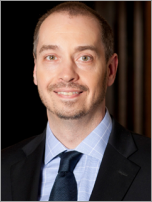
Richard Sharp, PhD, is Professor and Director of the Biomedical Ethics Program, the Center for Individualized Medicine Bioethics Program, and the Clinical and Translational Research Ethics Program, all at the Mayo Clinic. He has studied a variety of topics in biomedical ethics, including the integration of genetic technologies into patient care, best practices for clinical ethics consultation, financial conflicts of interest, and ethical dimensions of patient advocacy. Prof. Sharp frequently advises health care organizations on ethical issues and has served on advisory committees for the National Institutes of Health, Institute of Medicine, and U.S. Environmental Protection Agency.

Scott Sponheim, PhD, LP, is a Staff Psychologist at the Minneapolis Veterans Affairs Health Care System and a Professor in the Department of Psychiatry at the University of Minnesota. His primary research focus is to understand how genetic risk for schizophrenia and bipolar disorder is expressed in the functions of the brain. Dr. Sponheim also studies military-related traumatic brain injury and post-traumatic stress disorder in a search for brain-based measures that differentiate the two conditions and may help guide treatment decisions for individuals who have been exposed to traumatic explosive blast events in combat.

Jakub Tolar, MD, PhD, is Executive Vice Dean of the Medical School; McKnight Professor of Pediatrics; Edmund Wallace Tulloch and Anna Marie Tulloch Chair in Stem Cell Biology, Genetics and Genomics; and Director of the University of Minnesota Stem Cell Institute. Prof. Tolar's research focuses on using hematopoietic stem cell transplant as a treatment for rare genetic disorders including Hurler syndrome and dyskeratosis congenital, and has achieved international recognition for his work in caring for patients with recessive dystrophic epidermolysis bullosa.

Effy Vayena, PhD, is Swiss National Science Foundation (SNSF) Professor of Health Policy at the University of Zurich, where she is Division Head of the Epidemiology, Biostatistics and Prevention Institute (EBPI) and leads the newly-established Health Ethics and Policy Lab in the Department of Public Health at the EBPI. From 2000-07 she worked at the World Health Organization (WHO), focusing on ethical and policy issues relating to reproductive health and assisted reproduction as well as on health research ethics. She remains a consultant to WHO and is visiting faculty at the Harvard Center for Bioethics, Harvard Medical School. In 2015–16, she was Fellow at the Berkman Center for Internet and Society at Harvard Law School.

John Wilbanks, BA, is the Chief Commons Officer at Sage Bionetworks. Previously, Wilbanks worked as a Legislative Aide to Congressman Fortney “Pete” Stark, served as the first Assistant Director at Harvard’s Berkman Center for Internet & Society, founded and led to acquisition the bioinformatics company Incellico, Inc., and was Executive Director of the Science Commons project at Creative Commons. In February 2013, in response to a We the People petition that was spearheaded by Wilbanks and signed by 65,000 people, the U.S. government announced a plan to open up taxpayer-funded research data and make it available for free. Wilbanks holds a B.A. in philosophy from Tulane University and also studied modern letters at the Sorbonne.
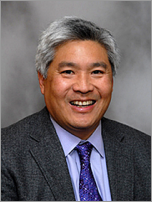
Douglas Yee, MD, is Director of the Masonic Cancer Center, Professor of Medicine and Pharmacology, and John H. Kersey Chair in Cancer Research at the University of Minnesota. As Director of the Cancer Center, he serves as the point person for all cancer research at the University. He also treats patients with breast cancer and conducts research to improve cancer therapies.
Planning Committee

Susan M. Wolf, JD, is chair of the conference planning committee. She is McKnight Presidential Professor of Law, Medicine & Public Policy; Faegre Baker Daniels Professor of Law; and Professor of Medicine at the University of Minnesota. Prof. Wolf is Chair of the Consortium on Law and Values in Health, Environment & the Life Sciences. She is an elected member of the National Academy of Medicine (NAM) and a Fellow of the American Association for the Advancement of Science. Prof. Wolf's research has been supported by the National Institutes of Health (NIH) and National Science Foundation (NSF) as well as private foundations including the Robert Wood Johnson Foundation and The Greenwall Foundation. She is currently a Principal Investigator on a project funded by the National Human Genome Research Institute (NHGRI) and National Cancer Institute (NCI) of the National Institutes of Health, LawSeq: Building a Sound Legal Foundation for Translating Genomics into Clinical Application (1-R01-HG008605).

Bruce Blazar, MD, is Regents Professor of Pediatrics, and Chief of the Pediatric Blood and Marrow Transplantation Program at the University of Minnesota. He has directed preclinical basic and translational immunology and stem cell research and early phase clinical studies for more than 25 years, with particular emphasis on the blood and marrow transplantation immunobiology. Prof. Blazar is the Associate Vice President for Clinical and Translational Science and the Director of the University's Clinical and Translational Science Institute (CTSI). He is an elected member of the National Academy of Medicine (NAM).

Kathleen Thiede Call, PhD, is Professor of Health Policy & Management in the School of Public Health; Community Engagement to Advance Research and Community Health (CEARCH); and Clinical and Translational Science Institute (CTSI). She is Co-Director of the Health Equity Work Group in the School of Public Health, all at the University of Minnesota. Her research focuses on access to care and health insurance among vulnerable populations, including poor, young, elderly, uninsured, rural and chronically ill populations; sociology of health and illness; and survey research methods.

Ellen Wright Clayton, MD, JD, is Craig-Weaver Professor of Pediatrics, Professor of Law, and Co-founder of the Center for Biomedical Ethics and Society, Vanderbilt University. She is the 2010 recipient of the William G. Bartholome Award for Ethical Excellence from the American Academy of Pediatrics’ Section on Bioethics. Prof. Clayton is an elected member of the Institute of Medicine (IOM), where she serves on the National Advisory Council, and a Fellow of the American Association for the Advancement of Science (AAAS). She has advised the National Institutes of Health and other federal and international bodies on topics ranging from children's and women's health to the ethical conduct of human subject research. She is currently a Principal Investigator on a project funded by the National Human Genome Research Institute (NHGRI) and National Cancer Institute (NCI) of the National Institutes of Health, LawSeq: Building a Sound Legal Foundation for Translating Genomics into Clinical Application (1-R01-HG008605).

Milton "Mickey" Eder, PhD, is Chair of the Biomedical Review Board at the University of Minnesota. He joined the University of Minnesota Department of Family Medicine and Community Health research faculty in 2014. He conducts translational research and focuses on transforming the public's relationship to research, engaging communities in all aspects of research, and improving health outcomes. Eder is also interested in practice-based research to improve patient safety within primary care. Additionally, he is the Associate Director of the U of M Clinical and Translational Science Institute's (CTSI) Office of Community Engagement to Advance Research and Community Health. Previously, he served as the Director of research and evaluation programs at Access Community Health Network in Chicago for 10 years. At this network of federally qualified health centers, he organized and initiated research involving patient safety, health literacy, and health disparities, with the goal of improving individual and community health outcomes.
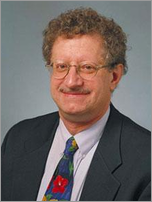
Gary Gardner, PhD, is Professor of Horticultural Science at the University of Minnesota. Prof. Gardner is a member of the graduate faculties in Plant Biological Sciences and Applied Plant Sciences; the Advisory Board of the Healthy Foods, Healthy Lives Institute; and the Executive Committee of the Consortium on Law and Values in Health, Environment & the Life Sciences.

Apostolos P. Georgopoulos, MD, PhD, is Regents Professor of Neuroscience; McKnight Presidential Chair in Cognitive Neuroscience; Professor of Neuroscience, Neurology, and Psychiatry; and Affiliate Faculty at the Institute for Health Informatics (IHI), all at the University of Minnesota. He is also Director and American Legion Brain Sciences Chair, Brain Sciences Center at the Minneapolis VA Medical Center. He is an elected member of the National Academy of Medicine (NAM) and American Academy of Arts and Sciences.

Sarah Gollust, PhD, is an Associate Professor of Health Policy & Management the School of Public Health at the University of Minnesota. Prof. Gollust conducts research on the influence of communication in health policy and the factors that shape public opinion and the policymaking process. Areas of research and teaching interest include health disparities, policies to prevent childhood obesity, cancer screening, and ethical issues in public health practice and policy.

Megan Gunnar, PhD, is Regents Professor; Distinguished McKnight University Professor; Director (Department Chair) of the Institute of Child Development; and Associate Director, Center for Neurobehavioral Development, all the University of Minnesota. Her research focuses on how children and adolescents regulate stress physiology and emotions and the impact of early life stress on brain and behavioral development. Prof. Gunnar is a member of the Governor's Early Learning Council.

Frances Lawrenz, PhD, is Professor of Educational Psychology and Associate Vice President for Research at the University of Minnesota. Her research focuses on science and mathematics program evaluation, utilizing a variety of techniques and usually involving mixed methodologies. Along with her teaching duties, Prof. Lawrenz is currently involved in the evaluation of several national science and mathematics programs. She has been recognized by the American Educational Research Association, having been awarded the 2016 Research on Evaluation SIG Distinguished Scholar Award for outstanding contributions to advance research in the field of evaluation, and by the National Association for Research in Science Teaching, with the Distinguished Contributions to Science Education through Research Award for outstanding contributions to science education in 2014. She is currently a Principal Investigator on a project funded by the National Human Genome Research Institute (NHGRI) and National Cancer Institute (NCI) of the National Institutes of Health, LawSeq: Building a Sound Legal Foundation for Translating Genomics into Clinical Application (1-R01-HG008605).

Michael T. Osterholm, PhD, MPH, is Regents Professor; McKnight Presidential Endowed Chair in Public Health; the Director of the Center for Infectious Disease Research and Policy (CIDRAP); and Distinguished Teaching Professor in the Division of Environmental Health Sciences, School of Public Health at the University of Minnesota. He is also a Professor in the Technological Leadership Institute, College of Science and Engineering, and an Adjunct Professor in the Medical School. He is a member of the National Academy of Medicine (NAM) and the Council on Foreign Relations. He has served as a high-level advisor on issues related to bioterrorism, public health preparedness, and infectious diseases.

Michael Sadowsky, PhD, is Director of the BioTechnology Institute; Professor in the BioTechnology Institute and Department of Soil, Water & Climate; and serves on the faculty of 10 Graduate Programs, all at the University of Minnesota. Prof. Sadowsky is a fellow in the prestigious American Academy of Microbiology, and the American Association for the Advancement of Science. He is internationally known and respected for his research work in the area of fecal microbiota transplantation and environmental microbiology.

Jakub Tolar, MD, PhD, is Executive Vice Dean of the Medical School; McKnight Professor of Pediatrics; Edmund Wallace Tulloch and Anna Marie Tulloch Chair in Stem Cell Biology, Genetics and Genomics; and Director of the University of Minnesota Stem Cell Institute. Prof. Tolar's research focuses on using hematopoietic stem cell transplant as a treatment for rare genetic disorders including Hurler syndrome and dyskeratosis congenital, and has achieved international recognition for his work in caring for patients with recessive dystrophic epidermolysis bullosa.
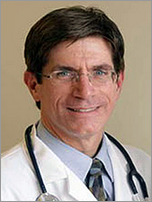
John E. Wagner, Jr., MD, is McKnight Presidential Chair in Childhood Cancer Research; Children's Cancer Research Fund/Hageboeck Family Endowed Chair in Pediatric Oncology; Professor and Director of Blood and Marrow Transplantation in the Department of Pediatrics; Scientific Director of Clinical Research at the Stem Cell Institute; and Co-Director of the Center for Translational Medicine at the University of Minnesota. Prof. Wagner has led the University of Minnesota's Cord Blood Transplantation Program in the treatment of adults and children and is responsible for its international prominence, having first pioneered its use in 1990 in leukemia. Prof. Wagner also specializes in Fanconi anemia and the use of stem cells in severe forms of a rare skin disease called epidermolysis bullosa, or EB.

Douglas Yee, MD, is Director of the Masonic Cancer Center, Professor of Medicine and Pharmacology, and John H. Kersey Chair in Cancer Research at the University of Minnesota. As Director of the Cancer Center, he serves as the point person for all cancer research at the University. He also treats patients with breast cancer and conducts research to improve cancer therapies.
Resources
- The Changing Face of Clinical Trials: Informed Consent, New England Journal of Medicine, March 2, 2017
- Revision to the Common Rule, January 2017
- Office for Human Research Protections on Common Rule, US Department of Health and Human Services
- Informed Consent for Genomics Research, National Human Genome Research Institute of the National Institutes of Health
- Schloendorff v. Society of New York Hospital decision
- University of Minnesota Research Ethics portal
Sponsored by the Consortium on Law and Values in Health, Environment & the Life Sciences and Masonic Cancer Center, University of Minnesota. Also supported in part by the National Human Genome Research Institute (NHGRI) & National Cancer Institute (NCI), National Institutes of Health grant #1-R01-HG008605.
Accreditation Statement
In support of improving patient care, University of Minnesota, Interprofessional Continuing Education is jointly accredited by the Accreditation Council for Continuing Medical Education (ACCME), the Accreditation Council for Pharmacy Education (ACPE), and the American Nurses Credentialing Center (ANCC) to provide continuing education for the healthcare team.
American Medical Association (AMA) Credit Designation Statements
The University of Minnesota, Interprofessional Continuing Education designates this live activity for a maximum of 6.5 AMA PRA Category 1 Credits™. Physicians should claim only the credit commensurate with the extent of their participation in the activity.
Other Health Care Professionals
Other healthcare professionals who participate in this CE activity may submit this statement of participation to their appropriate accrediting organizations or state boards for consideration of credit. The participant is responsible for determining whether this activity meets the requirements for acceptable continuing education
Attorneys
The Minnesota Board of Continuing Legal Education approved this conference for 7 standard continuing legal education (CLE) credits. Event code is 235129.